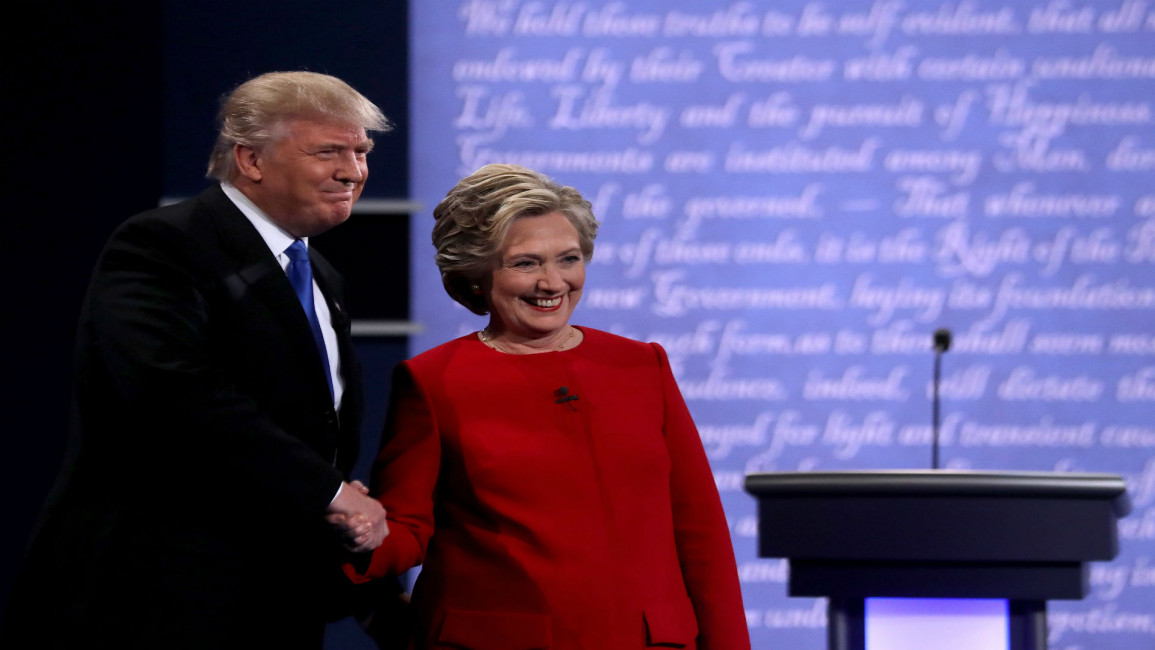
What to expect from the US presidential candidates
Just like that, the US presidential election is upon us. After months of campaigning – after a turbulent primary process and an increasingly excruciating general election campaign – the results will soon be known. America will go to the polls, and its next president will be chosen.
And things are closer now than they have been a in a while. The long-forecast decline in support has yet to befall Donald Trump; he is still more likely than many would prefer to win the presidency – not the favourite by any means, but certainly with a greater chance than his many detractors would hope.
Either he or Hillary Clinton are in line to become leader of the free world in January, and the coming inauguration – whichever way the election goes – will have lasting effects on the United States and the world at large.
One of the policy debates which has served to spawn much controversy in the course of the last year of campaigning is the matter of foreign policy.
Because of America’s undisputed geopolitical primacy, such questions affect not only how the United States perceives itself, but also how other actors, national and otherwise, act and expect to be treated by the world’s only superpower.
Donald Trump has preached a starkly isolationist doctrine, one which warns against and seeks to combat what he, borrowing a phrase from the fringe right wing, calls ‘the false song of globalism’.
His vision disdains trade deals, international alliances and nations which don’t pay their own way. It is a worldview which is decidedly favourable to dictators such as Bashar al-Assad of Syria and his sponsor, Russian president Vladimir Putin. Trump also wishes to build a wall to span the US–Mexico border.
How much of this is achievable? And how many of these promises would be quietly and quickly sidelined in a Trump administration, dismissed as impractical or unrealistic, never to see the light of day again?
 |
Trump is largely out of step with the policymaking establishment of the United States for the same reason he is out of step with the political establishment |  |
Some of his policies – the monetisation of NATO, for example – will either be dropped outright or cause the splintering of that pillar of collective security.
If he doesn’t drop it pretty rapidly upon entering office, as all of his advisors will forcefully suggest, president Trump will find himself and his country increasingly isolated and alone.
Trump is largely out of step with the policymaking establishment of the United States for the same reason he is out of step with the political establishment more generally: he ridicules their efforts, insults them personally, and does not appear, in many cases, to understand the substance of the many issues at hand.
He has said he knows more about fighting ISIS than all the generals do. But some of them, Michael Flynn being the most prominent example, still support him and declare their allegiance with vigour.
In a similar way, perhaps, or for related reasons, some Middle East experts – not many but some – do support him, primarily because they think that he, unlike Clinton, might be pliant.
His inexperience would necessitate dependence on advisors – namely, the same people he ridiculed on the campaign trail.
He might end up taking a more aggressive line on Iran in Syria, something many analysts believe the Obama administration was simply unwilling to do, preferring instead to secure the prospect of a nuclear deal with Iran and a foreign policy legacy.
It is possible, therefore, that a Trump foreign policy could, in the short term, correct some of the failures of Obama’s two terms in office – or at least begin to treat Iran less as a partner in the fight against IS and more of a geopolitical rival.
 |
It is also unlikely, despite her increasingly hawkish stance in public, that Clinton will do anything about the Assad regime and its Russian and Iranian backers. |  |
But as vital as this change is, it cannot mean anything if Trump also pursued diplomatic friendship with Russia, which would wreck generations of Western foreign policy orthodoxy.
There are certain areas where Trump would not be so dependent. Plans for the wall, for example, would definitely go ahead, whether it would be ruinously expensive or not.
It would happen even if it solved nothing and only antagonised America’s neighbours and allies. It would go ahead because for Trump to renege on this policy would constitute a great betrayal; there can be no turning back now.
Regardless of how he did it, a president Trump would have to build the wall – and he would need to make Mexico pay for it, possibly through mutually ruinous tariffs.
Clinton stands in opposition to such self-defeating measures; and she is now the de facto defender of the Western alliance – and indeed a defender of alliances generally. All this is to her credit.
She is also decidedly more experienced than her opponent in matters of foreign policy; unlike Trump, Clinton knows what the nuclear triad is and can differentiate between the IRGC-Quds Force and the Kurds.
But she comes with some unfortunate baggage. She is something of a hangover from the Obama administration; this is one line of Trump’s which consistently sticks.
 |
Clinton has the capacity to do better, but only if she listens to the better angels of her nature rather than continuing down the same failed route travelled by her predecessor |  |
And the Obama foreign policy is a failure, and not a noble one. Its wreckage is visible all around – in the hundreds of thousands dead in Syria, where war crimes continue to this day; in the increasing balkanisation of Iraq; in the fact that Russia has been allowed to invade a sovereign state in Europe, annex territory and still escape punishment.
How much of this will Clinton continue? Syrian and Iraqi lives have been sacrificed in pursuit of an Iran deal to which she still clings for rhetorical support.
It is also unlikely, despite her increasingly hawkish stance in public, that Clinton will do anything about the Assad regime and its Russian and Iranian backers.
A no-fly zone or no-bombing zone, though necessary, does not seem on the cards. And in any case, Assad has until January to liquidate the opposition, to crush Aleppo, and there is nothing Obama will do or Clinton can do to stop that happening until she takes office.
Cumulatively the last eight years have proven disastrous for American foreign policy and for the world. Donald Trump’s plans are ill-informed and ill thought out and dangerous.
Clinton has the capacity to do better, but only if she listens to the better angels of her nature rather than continuing down the same failed route travelled by her predecessor.
James Snell is a writer and blogger whose work has appeared in National Review, Prospect, CapX, NOW News, Middle East Eye, History Today and Left Foot Forward - among others. Follow him on Twitter: @James_P_Snell
Opinions expressed in this article remain those of the author and do not necessarily represent those of The New Arab, its editorial board or staff.




